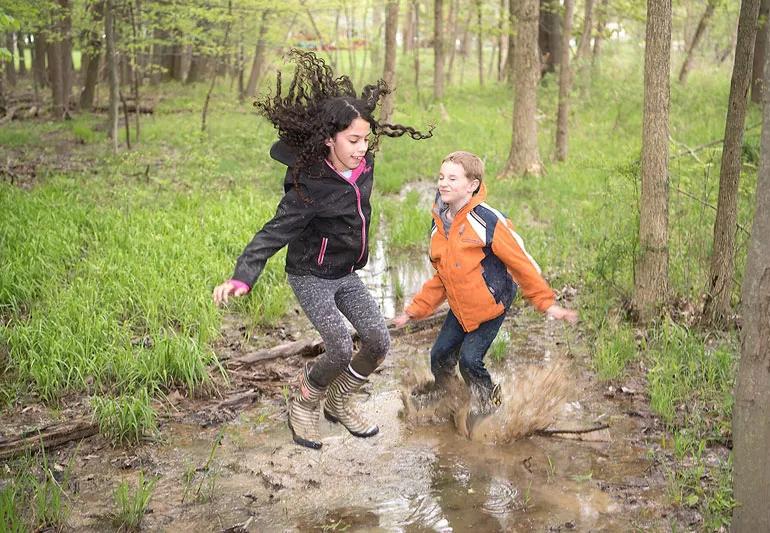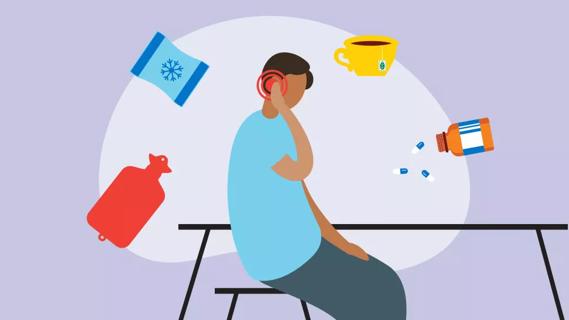Advertisement
Coronavirus coping skills for kids

Going out for ice cream. Playing tag with friends. Soccer practice in the park. For young kids, the little things mean everything. But as the coronavirus (COVID-19) pandemic drags on, so do the disappointments.
Advertisement
Cleveland Clinic is a non-profit academic medical center. Advertising on our site helps support our mission. We do not endorse non-Cleveland Clinic products or services. Policy
Canceled camps and continued social distancing are putting a serious damper on summer fun. That’s hard on young kids — and it’s just as tough for parents to watch their little ones miss out on the simple joys of childhood.
But it’ll be OK, says pediatric psychologist Emily Mudd, PhD. “Kids are incredibly resilient, and it’s our job as parents to help them build on that.” Here’s how.
Kids respond to stress in all sorts of ways. They might be sad or moody. They could be buzzing around like a ball of nervous energy. They might fly off the handle at the tiniest things.
What little kids don’t always do is explain how they’re feeling. As a caregiver, you have to read between the lines to figure out how to help them. And however your kid is traveling through this weird time in human history, you can take steps to smooth the ride.
“Kids’ No. 1 question is: When is this going to be over?” says Dr. Mudd. “It’s also the question parents can’t answer — and it’s OK to admit you don’t know.”
“Simply state that we don’t know what will happen, or when this will be over, but we do have a plan right now for our family to stay safe. You might say, ‘In our family, we are staying safe by doing things doctors and experts recommend, like social distancing and washing our hands,’” she says. “Be honest, have a calm demeanor, and keep it simple.”
Advertisement
Constant exposure to scary news is stressful for anybody, especially young children who aren’t developmentally able to process these news stories. “Monitor their screen time, and avoid keeping the news on all day long,” Dr. Mudd says.
“As parents, we want to fix our children’s problems, but we’re not able to fix this one,” Dr. Mudd says. “One of the most important things you can do is to listen and validate their feelings.”
Ask specific questions about why they’re upset. Acknowledge it’s hard to miss softball season or postpone a birthday party. “You can’t underestimate the power of empathy,” Dr. Mudd adds.
Finding simple yet special ways to have fun can give kids a serious mood boost, Dr. Mudd says. Bonus points if you can tie it to something they’re upset about.
Missing the beach? Plan a beach party on your patio. If you had to cancel a family camping trip, pick a day and camp in the backyard. It doesn’t have to be elaborate, she adds. “Parents don’t have a lot of mental energy right now, but you can keep it simple and still get creative to make it fun.”
Uncertainty is stressful, right? That goes for kids, too. To help them regain a sense of control, let them call the shots whenever possible. Have them pick the restaurant for takeout or choose the film for family movie night. They want to stay in pajamas all day? Whatever works.
If you’ve watched your little one try to video chat with a friend or classmate, you know how awkward it can be. “Extended conversations on video chat are tough for a 7-year-old,” Dr. Mudd says. “Young children just don’t have the attentional capacity to have meaningful interactions online, like they would at recess while they are simultaneously talking and moving their bodies.”
Try to find activities kids can do together during video chats, such as playing with dolls, eating the same meal, or building a neighborhood from their blocks.
Nature is a proven mood booster for people of all ages, so take advantage of nice weather to get your kids outdoors. Need to motivate your young homebody? Plan a family hike or create a nature scavenger hunt to give them a fun reason to head outside.
“Kids have a lot of energy,” Dr. Mudd says — a fact that is abundantly clear to families who have been stuck at home for months. And burning some of that energy will pay off in spades.
“It’s important to get daily movement of any kind,” she says. “Moving their bodies will help improve their moods, lower anxiety, and improve sleep.”
Being sad or worried is a normal reaction when routines have been turned upside down. “We expect some level of worry and disappointment in kids during this time,” Dr. Mudd says. But keep an eye out for signs of more serious anxiety or depression.
Advertisement
Some of these signs include:
“If you notice any of these signs, call your child’s doctor, and they can help your child get into treatment,” Dr. Mudd says.
Parenting a young child through the pandemic is not for the faint of heart. It’s hard to watch your child struggle. “This pandemic is the most challenging experience that most school-aged children have been through, but it’s important to remember that they’re resilient,” Dr. Mudd says.
Most small children won’t look back on this period and remember the scary news headlines, she adds. The feelings of being calm and safe will be the ones that linger.
“Kids might remember this as the time they got to camp in the yard or the summer they spent extra time with their families, creating memories,” Dr. Mudd says. “What they’ll remember most about this time is how they felt.”
Advertisement
Learn more about our editorial process.
Advertisement

These kids’ visits include getting important vaccines and checking on developmental milestones

Just like the flu, COVID-19 continues to evolve every year with new and smarter variants

The latest omicron subvariants carry specific mutations that may allow the SARS-CoV-2 virus to be better at evading immune protection

Research shows the virus can affect your ability to get or maintain an erection

The need for sleep often takes a back seat for teens, but they need eight to 10 hours of sleep to stay mentally healthy, strengthen their brains and prevent injury

RSV can lead your child to develop pneumonia and have trouble breathing

No juice until your child is 1 year old — and even then, they shouldn’t have much, if any

Getting extra rest, drinking fluids and taking over-the-counter medications can help your little one bounce back

Not all ear infections need antibiotics — cold and warm compresses and changing up your sleep position can help

A glass of lemon water in the morning can help with digestion and boost vitamin C levels, and may even help get you into a better routine